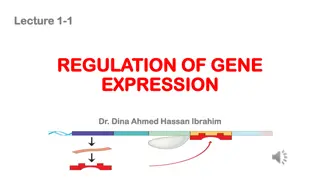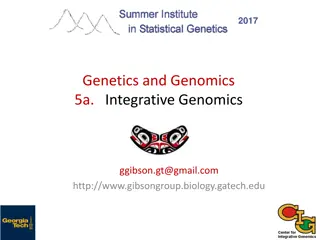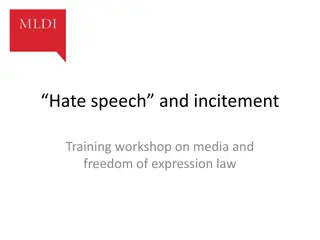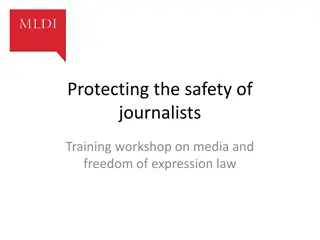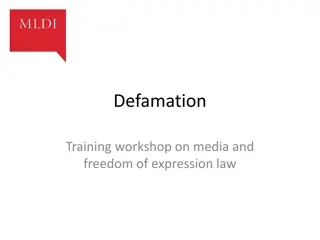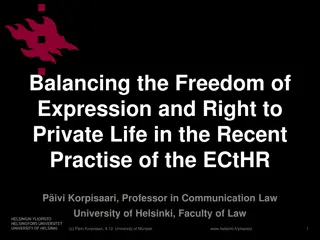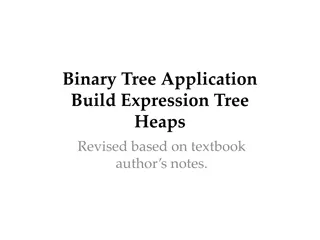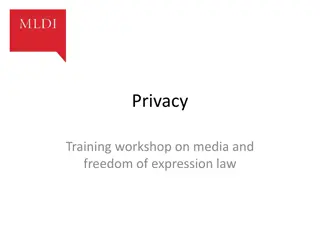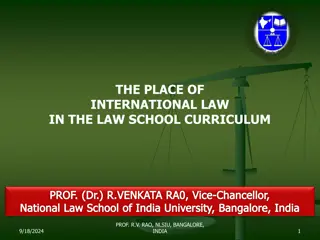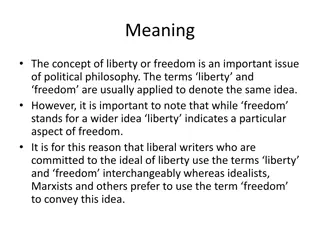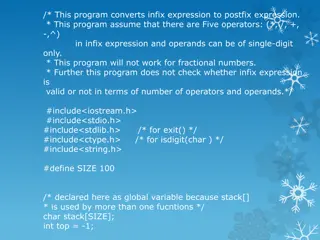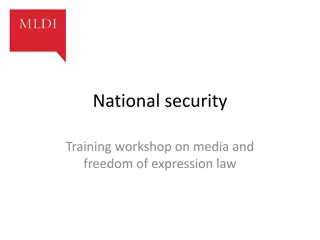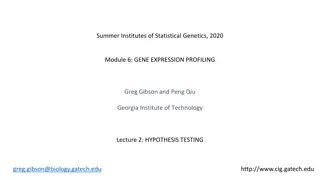Freedom of Expression in International Legal Perspectives
Delve into the complexities of freedom of expression across different legal systems, exploring international acts and court judgments. Uncover the varying levels of protection in different countries, along with pertinent controversies and the significance of this fundamental right in modern societies amidst globalization and technological advancements.
Download Presentation

Please find below an Image/Link to download the presentation.
The content on the website is provided AS IS for your information and personal use only. It may not be sold, licensed, or shared on other websites without obtaining consent from the author.If you encounter any issues during the download, it is possible that the publisher has removed the file from their server.
You are allowed to download the files provided on this website for personal or commercial use, subject to the condition that they are used lawfully. All files are the property of their respective owners.
The content on the website is provided AS IS for your information and personal use only. It may not be sold, licensed, or shared on other websites without obtaining consent from the author.
E N D
Presentation Transcript
International and Comparative Aspects Pawe Jab o ski Maciej Pichlak
Department of Legal Theory and Philosophy of Law Pawe Jab o ski: office hours on Tuesdays, from 8.10 to 10.10 a.m., room 301, buildingA pawel.jablonski@uwr.edu.pl Maciej Pichlak: Office hours on Fridays, 11.30 to 13.30, room 302, buildingA maciej.pichlak@uwr.edu.pl
Test: June7th Questionsonlyfrom lectures
- R. Cohen-Almagor, Speech, Media and Ethics. The Limits of Free Expression, Palgrave Macmillan,2005 - Franciszek Longchamps de B rier, Textbook on the First Amendment: Freedom of Speech and Freedomof Religion,Od.Nowa,2012 - Eric Barendt, Freedom of Speech, Oxford UniversityPress, 2005
legal level sociological level philosophical level
What are the international legal acts relating to freedomof expression? What are the similarities and differences between the protection of freedom of speech indifferentlegalorders? What are the most famous or most important court judgments on the issue of freedom of expression?
What is the actual level of protection of the freedomofspeechinvarious countries? What are the most relevant controversies aboutitandcasesofits abuse? Why is the problem of freedom of expression so importanttomodernsocieties? Why are such phenomena as technical progress, globalization, or social differen- tiationimportantforfreedomof expression?
We are all neighbours now. There are more phones than there are human beings and close to half of humankind has access to the internet. In our cities, we rub shoulders with strangers from every country, culture and faith. The world is not a global village but a global city, a virtual cosmopolis. Most of us can alsobe publishers now. We can post our thoughts and photos online, where in theory any one of billions of other people might encounter them. Never in human history was there such a freedom of expression asthis. And never have the evils of unlimited free expression - death threats, paedophile images, sewage-tides of abuse frontiers . Timothy Garton Ash, Free Speech. Ten Principles for a Connected World chance for - flowed so easily across
Which philosophers are important to the issueoffreedomofspeech? What types of arguments are there for freedomofspeech? What kinds of reasons restrictingthis freedom? Isspeakinganaction? Whatdoesit meantobefree? Why freedom of speech is so important for democracy? are there for
John Austin, How to do Things with Words? Paul Ricoeur, Oneself as Another, The Course of Recognition. Judith Butler, Excitable Speech: A politics of the Performative.
we must distinguish between the defence of freedom of expression as a particular, essential freedom, and the defence of democracyingeneral free speech doesn t protection of any manifestation of freedom ofexpression two opposing positions on the issue of relationship between justificationandajudicialdecision entail absolute philosophical
Argumentfromtruth Argumentfromself-fulfilment Argumentfromdemocracy Argumentfromsuspicion)
Argument basedon the importanceof open discussionto the discoveryof truth Truth as a goaland truth as a means Absoluteand relativisticpositions
Free speech is an integral aspect of each individual s right to self-development and fulfilment
We need freedom of expression because it makes the participation of citizens in democracypossible
The most important reason for the protection of freedom of expression is a need to protect the public from government abuse
The first treats free speech instrumentally that is, not because people have any intrinsic moral right to say what they wish, but because allowing them to do so, will produce good effects for the rest of us . (R. Dworkin) The second kind of justification of free speech supposes that freedom of speech is valuable, not just in virtue of the consequences it has, but because it is an essential and constitutive feature of a just political society, that government treat all it adults members, except those who are incompetent, as responsible moral agents (R. Dworkin)
Both allowexceptions They are not mutually exclusive The instrumentaljustificationisbothmore fragileand morelimited
Searchfor truth Individualautonomy Democracyand self-government Tolerance
The purpose of seeking the truth supports a distressingly narrow scope for free expression Opinions, evaluativestatements: how to justify them? They cannotbe easilyfalsified, but theyalsodo not directlycontributeto truth-seeking.
Protectionof solelytrue statementsmaylead to a chillingeffect of selfcensorship. A paradoxof underprotection(of truth) and overprotection(of false) A matterof politics, not truth?
According to some writers, the search for truth theory is ultimately based on the Millian argument about uncertainty, and on the virtue of scepticism. Sadurski s reply: The "infallibility" stick is too crude a weapon with which to attack the proponents of restraints on speech. If logically extended, it would undermine not only the legitimacy of restrictions on freedom of speech, but also any restrictions on any human freedom, simpliciter .
Itslinkedto the argument from self-fulfillment. Possibleobjections: It cannotjustify allinstancesof the excersice of freedomof expression; It does not allowto distinguishbetween verbaland nonverbalforms of selffulfillment; It does not allowto limit the freedomof expression, as longas the latterservesto self fulfillment.
The argument of Alexander Meiklejohn: Democracyrequires that citizens be free to receive all information which may affect their choices in the process of collective decision- making and, in particular, in the voting process. After all, the legitimacy of a democratic state is based on the free decisions taken by its citizens regarding all collective action. Consequently, all speech that is related to this collective self- determination by free people must enjoy absolute (or near-absolute) protection.
Objection: Others have observed that self-government is not necessarily linked to the principle of strong protection of freedom of speech; indeed, one may perhaps argue for restricting free speech on the basis of self-government .
We movea point of argumentationfrom a speaker to anauditor. Freedomof expressionserveshereto teachus tolerancetowardsa varietyof existing opinions. Objection: Arethereany limitsof tolerance? Shouldwe practicetolerancefor intolerance(e.g. to hate speech)?
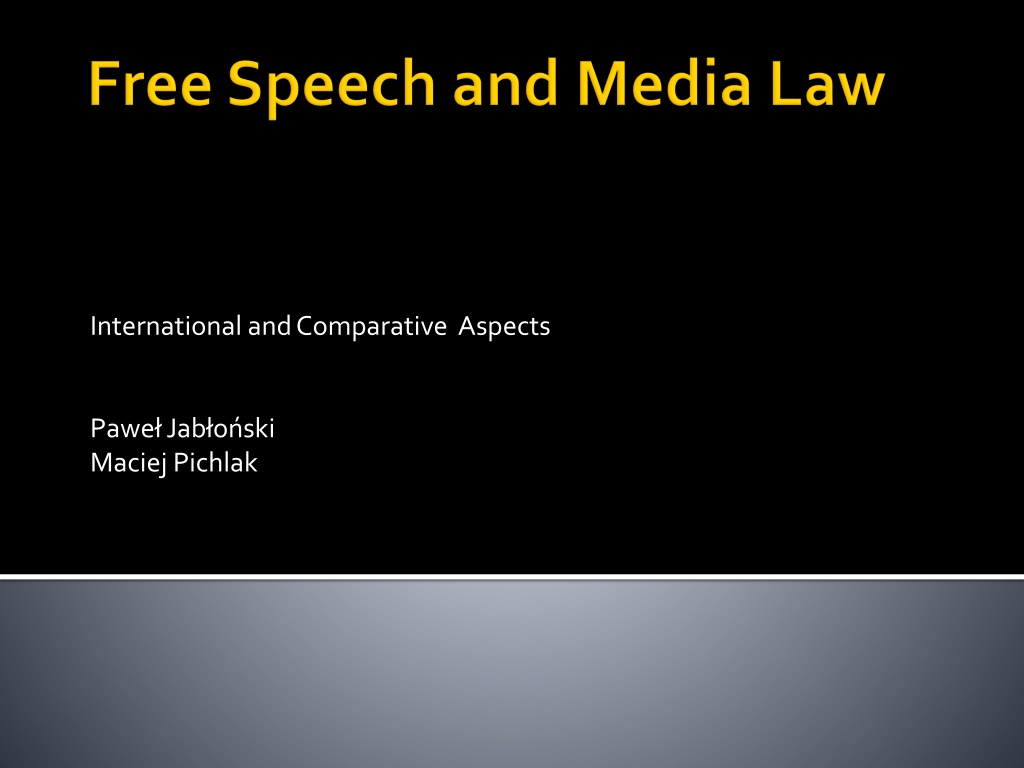
 undefined
undefined





